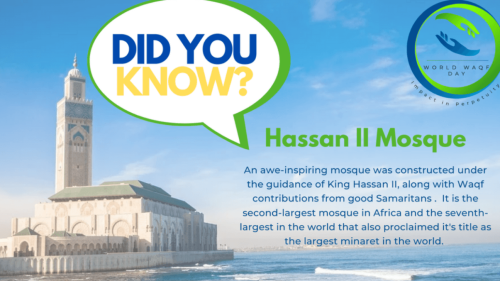Interest-free Economics Based on the Quran

The economic system of the Quran must be run on an interest-free basis. While this topic is hotly debated in Islamic circles, the proponents of interest-free Islamic economics mostly seek ways to adapt it to Western capitalism. But the economic system of Zakah, grounded in the Quran, is unique, relying on the desire of individuals to uplift themselves morally and spiritually, not materially. Just as Islam is opposed to Communism for putting the State before God and the “Self” (Soul), it is also opposed to Capitalism for putting money before God and the “Self.” According to the Quran, accumulating wealth and looking for ways to multiply it leads to hell (104:2-4).
The term Riba in the Quran encompasses more than “interest.” Riba is the foundation of an economic system that is so directly opposed to the economic system of the Quran that Allah asks believers in the Quran to declare that this system is a war against “Allah and the Prophet (PBUH),” (2:279) and, therefore, to fight it. Ironically, today most of our scholars occupy themselves with seeking solutions to the Riba-based economy of a non-Quranic system. In this connection some points worth noting are:
- · Whatever is collected in the name of Zakah nowadays is really a charity. It has nothing to do with the Quranic Zakah.
- · For Zakah, the existence of an Islamic government based solely on the Quran as its Constitution is essential (22:40). This must replace any man-made economic system (like Capitalism or Communism) or purify any system based on an amalgamation with the divine system like the one based on the so-called “Shariah” developed under the Abbasid rule.
- · It is this government that can truly give (the Quranic) Zakah (“Aatawuz Zakah”) to its people by providing the means of growth and nourishment to everyone equally while demolishing such barriers as wealth, status, race, gender, ethnicity, language, etc.
- · To discharge this responsibility, the entire revenue of this government can be called Zakah. The charitable contributions to deal with emergency situations are called Sadaqaat (not Zakah) by the Quran.
What is the incentive that will drive people to give their surplus wealth to the Islamic system willingly? What benefit will the individual derive who gives his/her surplus wealth to this system?
Without satisfactory answers to these questions, people will not be motivated to part with their surplus wealth. No one wants to part with his/her hard earned money without receiving some benefits in return. The Quran says:
He sends down water from the skies, and the channels flow, each according to its measure: But the torrent bears away the foam that mounts up to the surface. Even so, from that (ore) which they heat in the fire, to make ornaments or utensils therewith, there is a scum likewise. Thus doth God (by parables) show forth Truth and Vanity. For the scum disappears like froth cast out; while that which is for the good of mankind remains on the earth. Thus doth God set forth parables. [Ar-Ra`d 13:17, Translation: Yusuf Ali]
The above verse reveals clearly and beautifully the answer to our questions: only that system will stay forever which is beneficial to all of humanity. This is the fundamental law that decides whether a system or an ideology is capable of being maintained and sustained or is transient and will disappear. According to this law, a system which is designed to benefit only a particular group or nation, will disappear sooner or later. The ruins of past empires (including Umayyad and Abbasid ones) attest to the effectiveness of this law.
Therefore, when we choose an ideology of life other than what the Quran prescribes, we have to face the consequence of that choice.
The islafinQuranic Ideology: Universal Welfare
The Quran does not advocate this ideology on the basis of emotion or blind faith. It provides objective proof for every claim it makes. So, why is an ideology based on the welfare of an individual or a family, or a race, or a nation wrong while the one based on universal welfare right? The Quran explains it through a practical example and provides an objective proof for this claim.
If human beings lived only at the animal level, then it would have been acceptable to look for one’s own self-interest. Eating, drinking, and the pursuit of happiness from material things in life would have been their goal (47:12). But life at the human level is different than at the animal level. Animals do not have a sense of tomorrow or future. This distinguishes human beings from everything else in the universe. The human body in this world, which is a vehicle for the “self,” or “soul,” is left behind while the soul journeys on to another dimension which the Quran calls Ha-yaatul Aakhira. It is this sense of a larger future (or future life) that binds a human being with the rest of humanity just as individual members of a family work together for the future success of all the family members. Working for the benefit of humanity’s future leads, in turn, to development and growth of the “self,” an essential requirement for each individuals’ future journey. The Quran says:
Verily, (the ends) ye strive for are diverse. So he who gives and fears [Wattaqa], And (in all sincerity) testifies to the best,- We will indeed make smooth for him the path to Bliss. But he who is a greedy miser and thinks himself self-sufficient, And gives the lie to the best,- We will indeed make smooth for him the path to Misery; Nor will his wealth profit him when he falls headlong (into the Pit). Verily We take upon Ourselves to guide, And verily unto Us (belong) the End and the Beginning. Therefore do I warn you of a Fire blazing fiercely; None shall reach it but those most unfortunate ones Who give the lie to Truth and turn their backs. But those most devoted to God shall be removed far from it,- Those who spend their wealth for increase in self-purification, [Surah Al-Layl 92:4-18, Translation: Yusuf Ali.]
The above verses also provide the motivation for why one should “give.” “Giving” achieves two things. First, it provides a source of nourishment, growth and development at the physical level. This is so obvious that it does not require further elaboration. Second, what is not so obvious is how it affects the non-physical or “human” aspect of life. In the interest of simplicity and brevity it is said that “giving” leads to spiritual growth. But what is this spiritual growth and how does it occur?
Human Activity Is Subject to Higher Law
The Quran explains in concrete terms that “spiritual growth” is not something imaginary or metaphysical. It says there is a higher law that operates on the “self” just as the physical law operates on the body. This higher law is that the “self” grows by giving whereas the body grows by “taking.” Let us see a rational explanation for this law.
When human beings employ intelligence as a tool, human emotion tries to fulfill its ambitions and desires to excel by competition. Since human intelligence knows no other world than its own, it guides human beings to compete for this world. This is the material concept of life in which people try to outwit each other in conflict situations using every means, primarily power, money, and influence. This is amplified several folds (in terms of its influence and impact) at the national and international levels. The Quran says that this way of life is transient, leads to waste of human potential, and ultimately to human catastrophe. The Quran says:
Know ye (all), that the life of this world is but play and amusement, pomp and mutual boasting and multiplying, (in rivalry) among yourselves, riches and children. Here is a similitude: How rain and the growth which it brings forth, delight (the hearts of) the tillers; soon it withers; thou wilt see it grow yellow; then it becomes dry and crumbles away. But in the Hereafter is a Penalty severe (for the devotees of wrong). And Forgiveness from God and (His) Good Pleasure (for the devotees of God). And what is the life of this world, but goods and chattels of deception? [Sura Al-Hadid 57:20, Translation: Yusuf Ali]
Human Desire to Compete Cannot Be Crushed
Thus, according to the above verse, the Quran recognizes the very real existence of the human emotion to compete. But it also warns that the end result of the competition for material things is short-lived and destructive. The race for material things weakens rather than strengthens the human “self” and character. Instead, the Quran tells us to compete in a different arena, one which will not only strengthen our character and “self”, but the results of which will encompass both this world and the hereafter:
Race one with another for forgiveness from your Lord [Rab or Nourisher] and a Garden whereof the breadth is as the breadth of the heavens and the earth, which is in store for those who believe in Allah and His messengers. Such is the bounty of Allah, which He bestoweth upon whom He will, and Allah is of Infinite Bounty. [Sura Al-Hadid 57:21, Translation: Pickthall]
This competition leads to a system in which Allah’s bounty flows like a continuous river – a river that covers the breadth of the heavens and the earth—satisfying everyone’s needs in this life and extending to the other. No one, in this system, erects any barriers in this free flowing economic bounty (garden) of life. Rather, everyone seeks protection from Allah from such acts so that this bounty remains freely available for nourishment and growth for all, as Allah has promised (1:2, 17:31).
In a Quranic state it is not possible for some people to hoard material possessions beyond their needs and indulge in excesses, while the rest are deprived of the basic means and provisions of life. The Earth is the source of all the provisions of life. Like water, air and light, the Earth has been created by Allah for the benefit of all. Therefore, no one has the right to own it except Allah. We, humans, are only the trustees and beneficiaries. In this system, individuals cannot hold onto surplus wealth: “They ask thee how much they are to spend; Say: ‘What is beyond your needs.’” (2:219). Surplus wealth should go to the treasury (Baitul Maal) of the Islamic government, as was the case during the time of the rightly-guided Khalifas. Therefore, in this system, there is no question of individual, or group investment. This system will provide all the basic needs of life like housing, hospitalization, and education. No one will need to borrow money with interest for the above; no one will have surplus money to invest with interest.
=====
Topics: Interest (Riba), Islamic Finance
Views: 2239
Related Suggestions

















